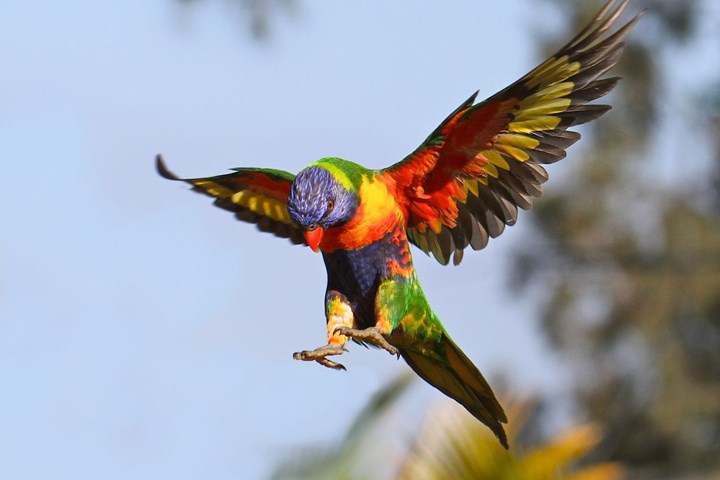Over 200 rainbow lorikeets have succumbed to a mysterious illness around Grafton in northern NSW, plunging researchers into investigation of Lorikeet Paralysis Syndrome (LPS). The past week has witnessed a surge in cases painting a distressing picture of an unfolding animal welfare crisis.
Describing the situation as dire, wildlife health and conservation expert Professor David Phalen highlights the varying degrees of paralysis displayed by affected lorikeets. Some exhibit unsteady movements, while others face complete body impairment, unable to blink or swallow. Shockingly, approximately 40% of these vibrant birds are not expected to survive this illness.
Despite the grim prognosis, a dedicated team of veterinarians and volunteers is working tirelessly to rehabilitate the affected lorikeets. RSPCA Queensland recently shared the poignant tale of four lorikeets – Mash, Chippy, Tater, and Spud. Tragically, Spud lost the battle to LPS, but the others are defying the odds. With treatments including fluids, nutrition therapy, pain relief, and eye drops, Mash, Chippy, and Tater are showing remarkable improvements, regaining the ability to perch and even self-feed.
As the Lorikeet Paralysis Syndrome continues to perplex researchers, concerns arise about its potential impact on human health. While there is currently no evidence suggesting direct transmission of LPS from lorikeets to humans, zoonotic diseases – those that can be transmitted between animals and humans – warrant careful consideration. It is essential for individuals who come into close contact with lorikeets, such as pet owners, veterinarians, and wildlife rehabilitators, to practice proper hygiene and take precautionary measures.

